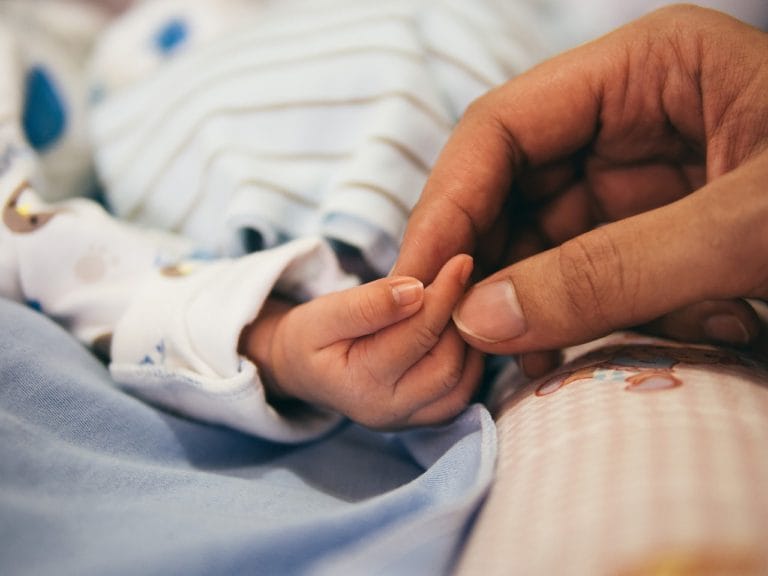Postpartum depression from breastfeeding
Can I have postpartum depression from breastfeeding or not being able to breastfeed? How mental health, new motherhood, cultural expectations and beliefs about one’s self collide in the world of baby feeding

Breastfeeding is a beautiful and wonderful experience, until it isn’t. For many women, their experience with postpartum depression stems from their breastfeeding experience. Moms experience difficulty nursing due to lack of support, low milk supply, tongue ties, painful latch, baby in the NICU, and a thousand other challenges you never knew were a possibility. When these challenges come your way, coupled with external pressures to breastfeed, internal expectations for yourself, and the postpartum experience, a new mother can be tipped toward postpartum depression.
While there is data to support that breastfeeding can reduce risk of postpartum depression, this data is often used to imply that a woman with postpartum depression wouldn’t have this experience if she had breastfed. Sadly, this is far from the truth. There just isn’t enough research on the impact of a negative breastfeeding experience on women’s mental health. We do know that when reality does not line up with a mother’s hopes and expectations, negative mental health outcomes result.
The “Breast is Best” Problem for New Moms
The vast majority of new mothers have never seen another woman breastfeed. And, if they have, it was likely in passing, brief, or infrequent. While newborns nurse 12 or more times per day, new mothers enter this experience with no visual reference for their role in the process. Being told that breastfeeding is natural or instinctual can often make a mother feel as if she’s failing from the start when she struggles. However, women in cultures where breastfeeding is regularly on display have fewer challenges with breastfeeding their own children. This visual exposure and learning can help a new mother breastfeed and can prepare women for challenges.
Many new mothers experience guilt over their difficulty breastfeeding, much of it stemming from the experience of external judgment. Every mother wants to do what’s “best” for her baby. The “breast is best” slogan can lead to a mother feeling as if any choice other than exclusive breastfeeding is bad or harmful. At Skylands Wellness, we believe strongly that the “best” choice of feeding for your baby has to do with many factors. Decisions around feeding should incorporate what is working for mom and baby together, as well as for the family’s overall schedule, needs, and values.
Breastfeeding anxiety, grief, and guilt
Difficulty with breastfeeding is often an anxiety trigger for new moms. Is my baby eating enough? Am I starving my child? Can my milk be causing my child’s rash and colic? If I give formula now, will I have low milk supply later? What if I’m just lazy? How can I possibly manage pumping when I go back to work? What happens if I need to travel? These are just some of the questions moms ask themselves as they navigate the stressful world of baby feeding. Without support, this anxiety can lead to postpartum depression.
When women who intended to breastfeed struggle or make changes in their feeding plans, they often express feeling guilt and grief over the choices. Guilt often stems from beliefs about whether they tried hard enough, made the right choices, or somehow contributed to their challenges. And grief surrounds the loss of an experience that she hoped and longed for. Seeing other women breastfeed can further exacerbate these feelings of guilt and grief. Unresolved guilt and grief can lead to depression. Many women who’s breastfeeding experience didn’t go according to plan report that their postpartum depression seemed to develop when their breastfeeding experience took a turn.
Mother-in-laws, nurses, and strangers in the grocery store…
We’ve heard about the opinions of mother-in-laws, nurses, and strangers in the grocery store on how a mother should be feeding her baby. In therapy for postpartum depression, many moms talk about the difficulty of hearing these strong outside opinions at such a vulnerable time. Even if a mom knows in her heart that her feeding choices are best for her family, she can be shaken by these outside opinions. When a mother gives up breastfeeding or changes her feeding plans, even if it wasn’t her desire to do so, a comment from an outsider can send her spiraling into self-doubt. If you made any other difficult decision in life that caused you grief, it’s far less likely that an outsider is going to come in and tell you that decision was wrong.
We wish we could protect moms from these outside comments that can be so harmful to her emotional healing. Since we can’t, we recommend that you process your grief in a healthy way that helps build your resilience against comments like these.
Sadness with Milk Ejection – Understanding DMER
If you are experiencing sadness, anxiety, dread, or emotional discomfort with milk ejection in the first few minutes of nursing, please speak to a lactation consultant about DMER (Dysphoric Milk Ejection Reflex). This is not postpartum depression on its own and is an often under-discussed condition affecting new moms. Of course, a mother can experience DMER and postpartum depression together, but a lactation consultant may be able to offer support to minimize the DMER experience.
I can’t get past my sadness about breastfeeding…
Postpartum therapy can address guilt, grief, sadness, and trauma related to the breastfeeding experience. When our expectations don’t match our reality, we can experience depression or a sense of being stuck in negative emotions. Talking about your experience can begin to help you heal. At Skylands Wellness, we support all forms of baby feeding and want you to know that you are not alone in your feelings. Babies are always welcome in our sessions! Call us today for a free 15 minute phone consultation. To learn more about Postpartum Therapy and how Skylands Wellness can help, click here.




